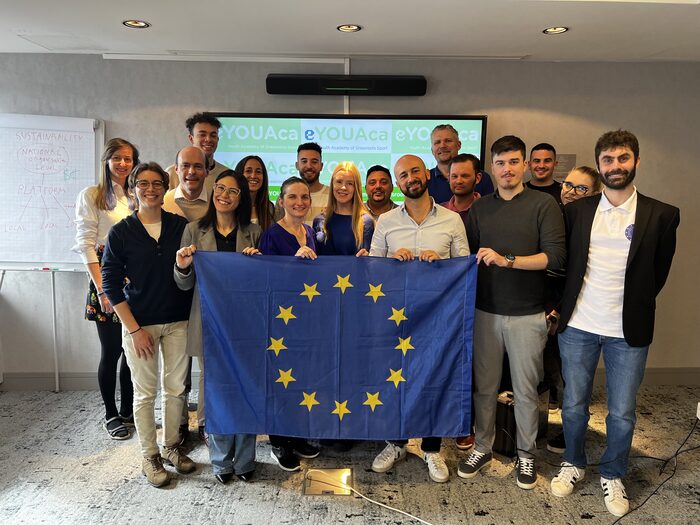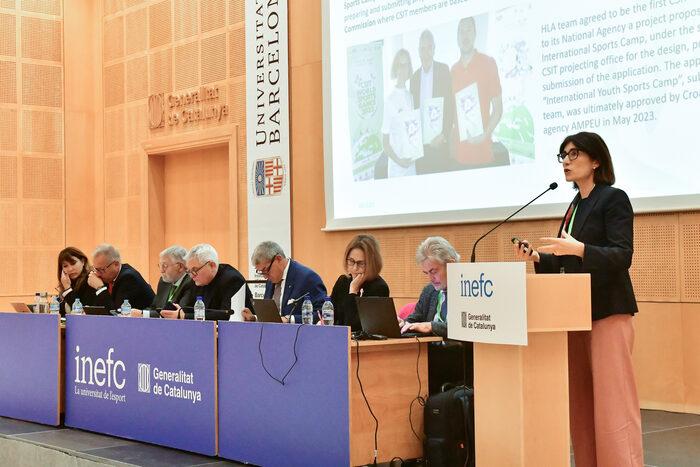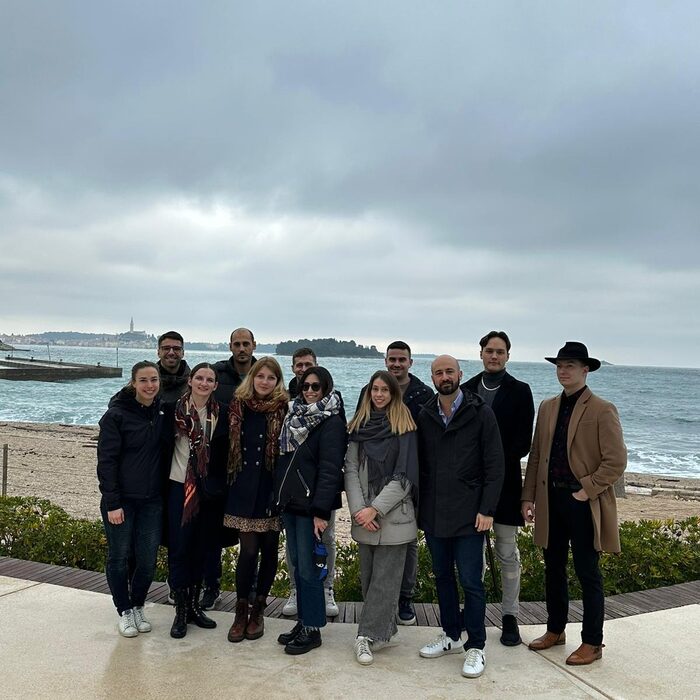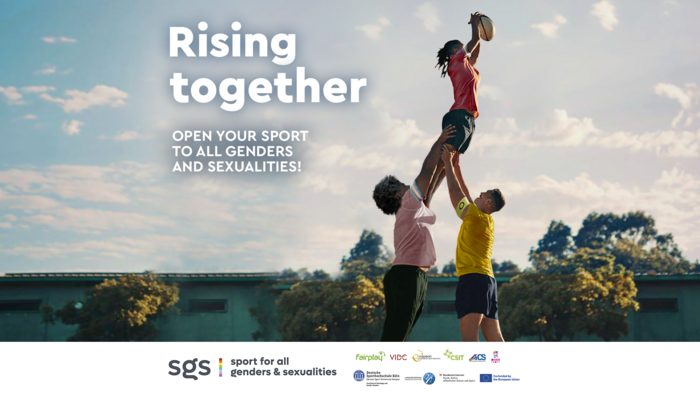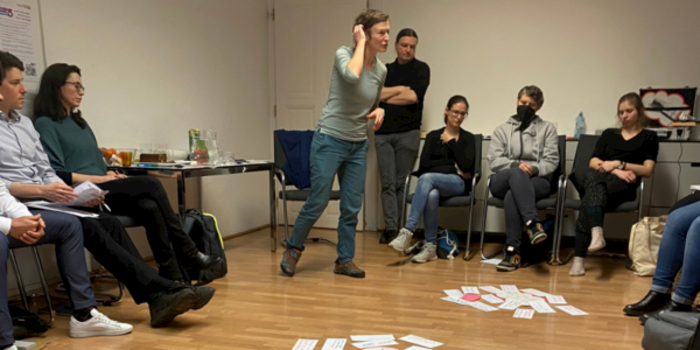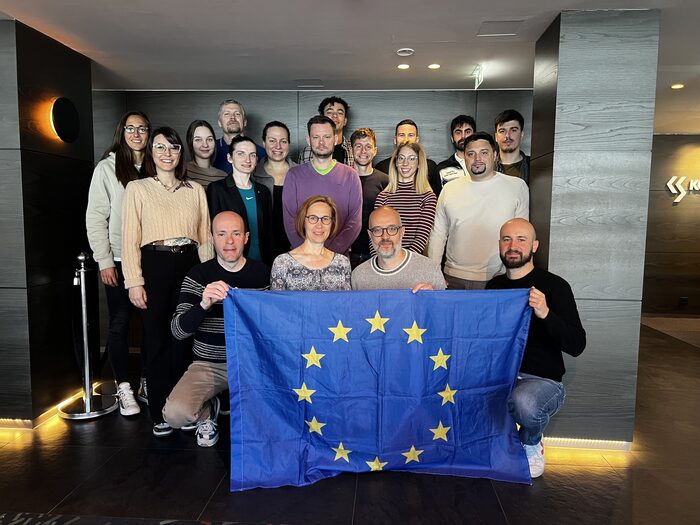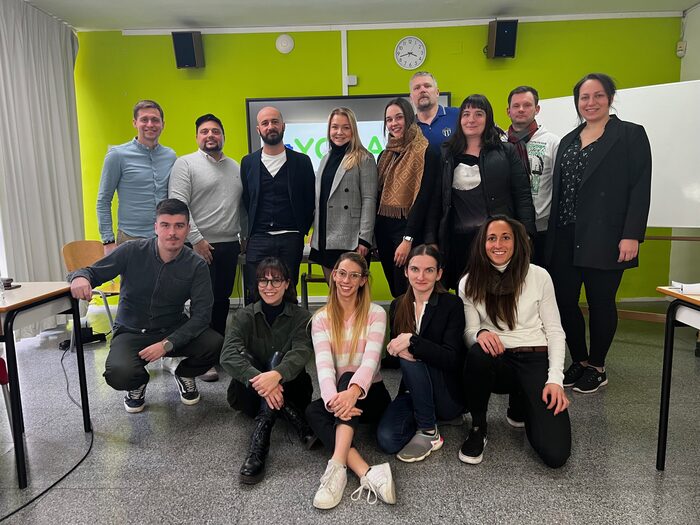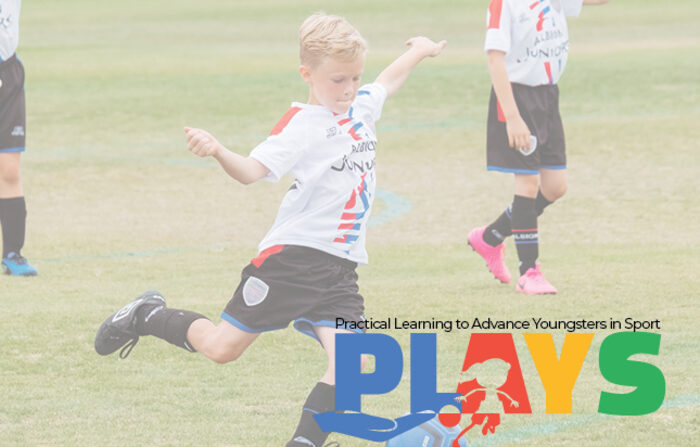The Research from SGS EU co-funded project
The EU co-funded project “SGS – Sport for all Genders and Sexualities”, aiming to promote an inclusive sports culture for all persons regardless of sexual orientation and gender identity in European grassroot sports, had reached another big milestone. A scientific research in the framework of the project with the main focus on providing insights into the situation of women and LGBT+ individuals in organized grassroots sports across Europe, which was conducted by German Sports University.
Aim of the Research
The primary goal of the research was to identify and understand the prevailing gender norms and stereotypes in organized sports and their impact on the discrimination and exclusion of girls, women, and LGBT+ individuals in grassroots sports.
Participants
The research engaged a diverse group of 2,832 respondents involved in organized grassroots sports, including athletes, coaches, board members, and volunteers. The sample of this study includes respondents from Germany, Austria, Spain, United Kingdom and Italy. The participants also reflect the diversity of European sports, with a range of sexual orientations, gender identities and levels of sports involvement, highlighting the inclusivity and variety within the sporting community.
Main Findings
By delving into the societal, organizational, and individual levels of organized sports systems, this study sheds light on the challenges faced by these communities. The main highlights of the study are:
- High agreement (77% to 84%) indicates prevalent discrimination against women, lesbian/bisexual women, gay/bisexual men, and trans/non-binary individuals.
- While there's progress in promoting gender equality (79%), only 56% advocate for diversity in sexual orientation, and 43% for diversity in gender identity. A smaller percentage utilizes inclusive language (40%) or has anti-discrimination policies (40%), with just 25% having an anti-discrimination function.
- Witnessed Discriminatory Language: In the last year, respondents witnessed sexism (46%), homonegativity (28%), and transnegativity (16%) in their sports activities, shedding light on the persistence of discriminatory behavior.
- About 10% experienced negative incidents in their main sports, including sexist and homo-hostile expressions, unfair treatment, and even physical violence, underscoring the personal toll of discrimination.
- In the sample, 9% of participants feel excluded from sports of interest due to their sex, sexual orientation or gender identity. As with the findings on personal negative experiences, trans, inter and non-binary persons are particularly vulnerable, although also cisgender and heterosexual athletes are affected (9% of cis women feel excluded from sport).
Have a look at the complete research document attached for further information, more in-depth insights and findings.
- Data_report_SGS_final.pdf
- pdf 1.63 Mb
28. November 2023 / EU Projects News

